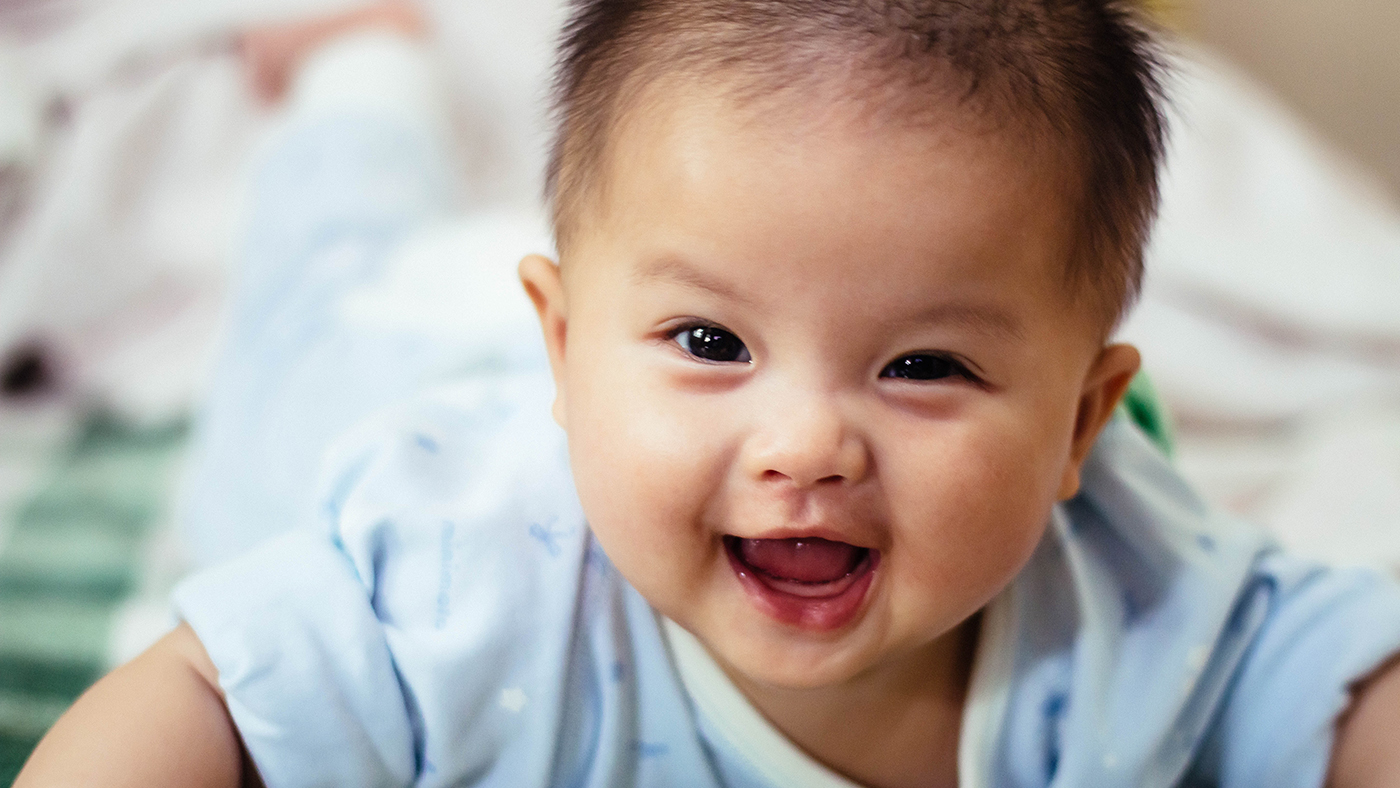Your baby's moving arms and legs are signs of anticipation... and fun!

Your baby has been exploring their movements and these are gradually becoming more controlled. These early movements have been linked to them developing their awareness of their body, strength and control of their movements.
Familiar people and situations will trigger anticipation
They will continue to move to explore and to develop strength and control, but you might also notice that your baby moves in response to an exciting event or something that interests them – this will often be you or someone else they see regularly. You might notice your baby begins to show some anticipation or excitement in very familiar situations, perhaps moving their arms and legs as you pick them up for a feed. They might also react with excitement in familiar situations, for instance, when you speak to them or play with them.[1]
This is your baby starting to respond...
Moving in response to something that interests or excites them is a step towards your baby responding in anticipation of something that is going to happen. At the moment, they don't have the cognitive skills or experience to anticipate what might happen during games, but these movements help them to learn about how their movement can influence others.[2]
And remember and learn!
The development of your baby’s ability to remember and learn from their experiences and the development of their social skills are closely linked. They will be starting to smile when they are happy or excited, they will notice how the people around them respond to their smiles and gradually understand that a smile can be a way to make a connection.
When you play with them, they will begin to realise that their responses influence how you respond and they will begin to remember and anticipate what happens in games and rhymes that you play frequently.
Rhymes and games will help them to link previous experiences
In the coming months, as your baby develops their physical skills and has more experiences they will start to respond just before something happens. They might start to laugh or wriggle before you peek out again when playing peekaboo, or they might begin to laugh before the point in a rhyme just before they know that you are going to tickle them!
Through these types of rhymes and games, your baby will develop their language and social skills as they watch you and begin to connect your movements and expressions with what might happen next. They will also develop their cognitive skills, as they begin to anticipate the very near future and learn from their experience of what has happened before to anticipate what will come next.
References:
[1] Sheridan, M., Sharma, A and Cockerill, H. (2014). Mary Sheridan’s from birth to five years. Children’s developmental progress. (4th edn.). Abingdon: Routledge.
[2] Addyman, C (2020) The laughing baby: The extraordinary science behind what makes babies happy. London: Unbound.